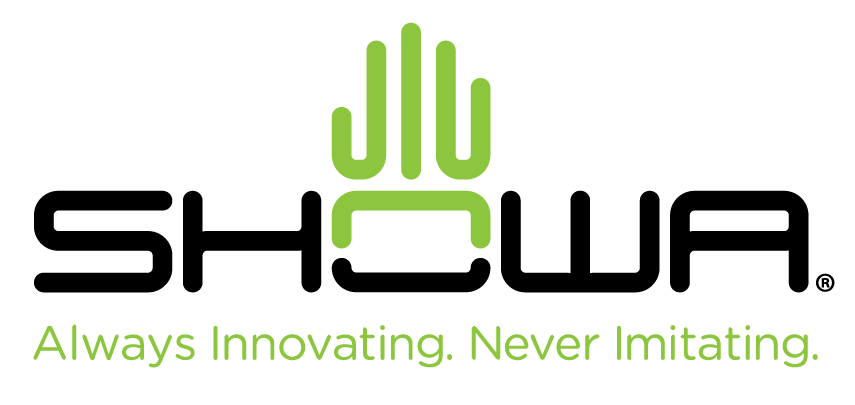- FIND GLOVES BY HAZARD
-
FIND GLOVES BY INDUSTRY
- Food
- Printing
- Engineering
- Automotive
- Chemical
- Railways
- Metallurgy
- Healthcare
- Packaging
- Mechanical
- Glass
- Electronics
- Utilities
- Construction
- Landscaping
- DIY
- Outdoor Sports
- Mining
- Airports & Ports
- Janitorial
- Manufacturing
- Warehousing & Distribution
- Clean Room
- Pharmaceutical
- Aerospace
- Laboratory
- Municipal services
- Agriculture
- Commercial Fishing
- Oil and Gas

NITRILE®
Anti-slip vulcanised synthetic rubber
Advantages
- Excellent abrasion and cut resistance
- Three times the puncture resistance of latex
- Good mechanical performance
- Excellent resistance to oil, grease and hydrocarbons
- Good resistance to acids, certain organic solvents, pesticides, oils and fuels
- No latex proteins
- Heat resistance (but no flame resistance)
Limitations
- Relatively rigid
- Normally low tear resistance
- No chemical resistance against ketones and some chlorinated hydrocarbons methylene chloride and trichloroethylene
NATURAL RUBBER LATEX
Natural rubber mainly from latex and the rubber tree
Advantages
- Very flexible and elastic
- Good grip
- Excellent resistance to tearing and bendings
- Good resistance to abrasion
- Very robust
- Waterproof
- Protects against weak acids, caustics, alcohols and detergents
- Protection viruses and bacteria
Limitations
- Poor chemical resistance against oils, greases, hydrocarbons and organic solvents
- Proteins may cause allergies
POLYURETHANE
Advantages
- Very flexible and elastic
- No latex proteins
- Clean – does not shed particles like other polymers
- ood resistance to abrasion
- Good resistance to oil
- Does not harden in the cold
- Does not soften in the heat
- Excellent perspiration thanks to porous ventilation
Limitations
- Low chemical resistance
- Poor resistance to hot water
PVC (POLY VINYL CHLORIDE)
Impermeable plastic
Advantages
- Flexible at even -20°C
- Material softened by a plasticizer
- Good electrical insulator
- High chemical resistance
Limitations
- Low resistance to cuts, puncturing and heat
- Disposable PVC gloves might have pinholes
- Low resistance to solvents
NEOPRENE
Polychloroprene synthetic rubber
Advantages
- Flexible and soft like natural rubber
- No latex proteins
- Good abrasion and cut resistant
- Chemical protection against acids, alcohols, fats, ketones, organic and inorganic solvents, oils, greases and petrochemicals
- Heat resistant and flame resistant
Limitations
- Poor grip when wet
- No chemical resistance against chlorinated hydrocarbon solvents
BUTYL
Synthetic rubber polymer for heavy chemical protection
Advantages
- Very elastic, even at low temperatures
- Excellent chemical resistance against ketones (MEK, acetone) and acids
- Low gas permeability
Limitations
- Limited grip
- Limited dexterity
- Poor mechanical resistance
- Poor resistance to aliphatic hydrocarbons (hexane, diesel, gasoline), aromatic hydrocarbons (benzene, toluene, xylene) and halogenated solvents (chloroform and chlorobenzene)
VITON
Synthetic rubber polymer – the last resort
Advantages
- Protects where nothing else protects
- Chemical protection against PCBs
- Excellent chemical protection against chlorinated, aliphatic and aromatic hydrocarbons
Limitations
- Limited grip
- Limited dexterity
- Not suitable for ketones, esters and nitro compounds


